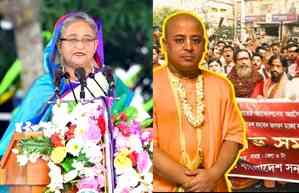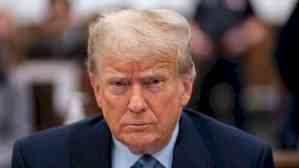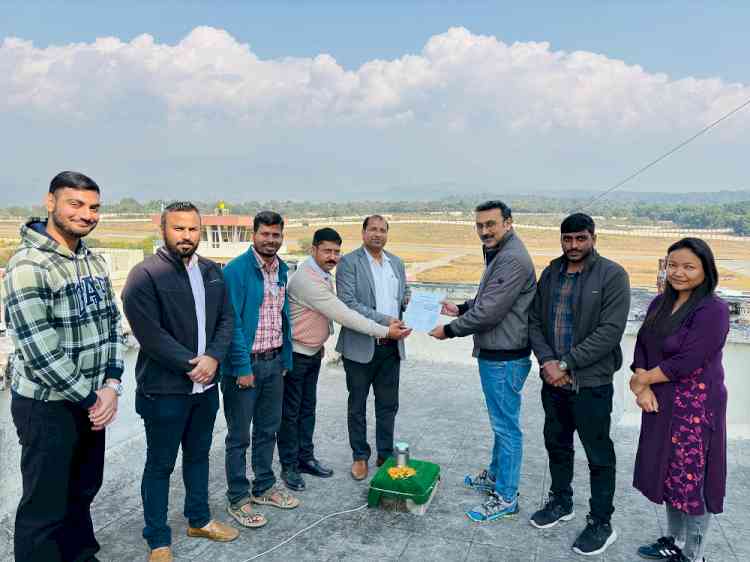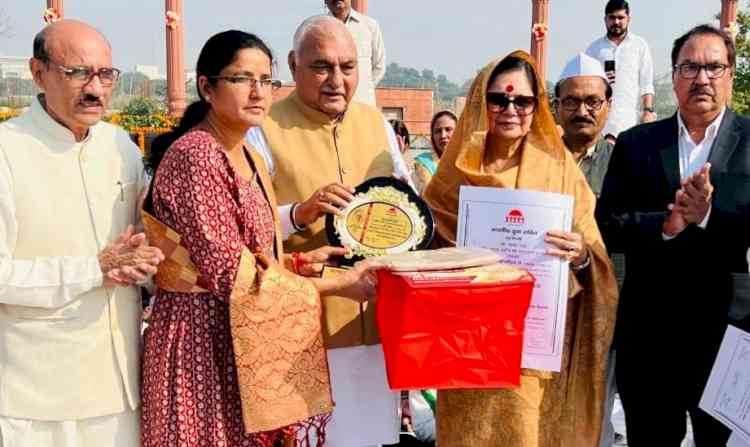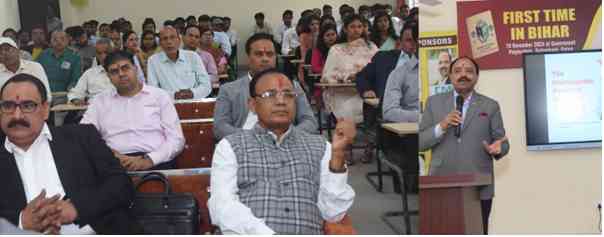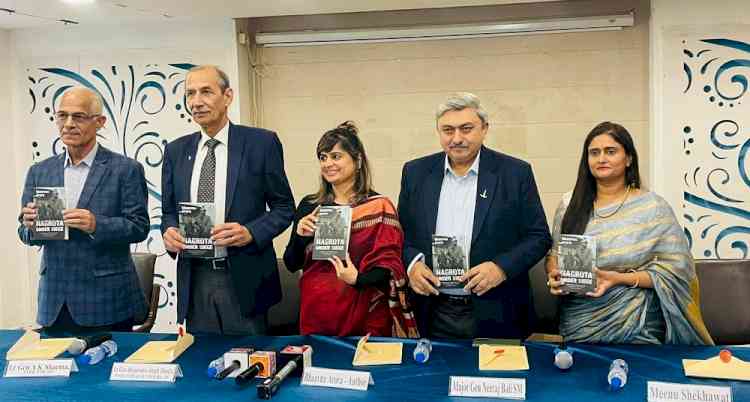Balochistan rocked by Pashtun and Baloch protests
It seems all of Pakistan is engulfed in protests and disaffection even as former prime minister Imran Khan grabs the eyeballs. The last two days, Pashtuns and the Baloch people gathered in massive numbers to voice their dissatisfaction against the Pakistan government.
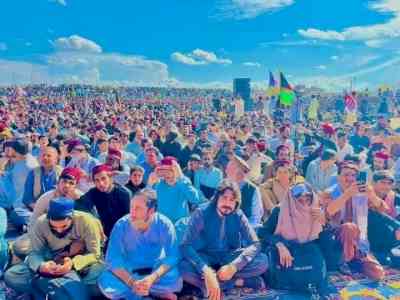
RAHUL KUMAR
New Delhi, March 21: It seems all of Pakistan is engulfed in protests and disaffection even as former prime minister Imran Khan grabs the eyeballs. The last two days, Pashtuns and the Baloch people gathered in massive numbers to voice their dissatisfaction against the Pakistan government.
Gwadar, the port city on Pakistan's south-western coast, being developed by China under the mega Belt and Road Initiative (BRI) as a multi-use port saw tens of thousands of women take out a protest march against the government over the incarcerated Jamaat-e-Islami (JI) leader Maulana Hidayat-ur-Rehman today and on Sunday. The women protested against what they called the "illegal arrest" of Rehman-the architect of the Gwadar ko Haq Do (Give rights to Gwadar) movement.
The conflict-ridden province of Balochistan witnessed mass protests by the Baloch community in Gwadar in south Pakistan while the estranged Pashtuns held a rally in Loralai in the north. The massive protests by Pakistan's estranged communities were completely ignored by the mainstream media.
The women shouted slogans against the Pakistani government and marched through Gwadar roads demanding the release of Rehman. JI politicians Mushtaq Ahmed, Hussain Wadela, former Balochistan caretaker minister, Mir Naveed Kalmati and other leaders joined the protests.
Rehman, a popular figure with the local Baloch populace, joined the Baloch struggle in 2021 when he erected the mass movement for basic rights like water, electricity, livelihoods, ease of movement as well as a ban on the movement of drugs and alcohol. His movement spread on the strength of women and students in October 2021, who staged sit-ins in Gwadar city and blocked main roads. With the surge in the movement, which spread to other towns on the Makran coast, the government eventually signed an agreement in December 2021 to fulfil local demands.
However, with the government unable to provide development or succor to the local Baloch people, they re-started their protest in 2022. This time, the police arrested Rehman on January 13 as violence broke out during the protests. One person died and property was damaged in the demonstrations in Gwadar. The government also banned communications and the internet besides imposing Section-144.
Northern Balochistan saw a rally of another kind in Loralai - one where Pashtuns bravely waved the Afghan flag in the heart of Pakistan and criticised the Pakistani army for foisting terrorism on the Pashtuns.
The rally brought thousands of tribesmen from Khyber Pakhtunkhwa as well as Balochistan to Pashtun Tahafuz Movement (PTM) leader Ali Wazir's event. They were demanding an end to violence and terrorism in their areas, for which they hold the Pakistani army responsible. Masses had begun to converge on Loralai on Saturday - one day before the event.
Pashtun leader Wazir, who was released in February after spending over two years in jail, was given a hero's welcome by the Pashtun people. Addressing the rally in Loralai, he said that Pashtuns deserve to live in peace and in dignity. People at the rally demanded an end to unrest in the region and an "end to State terrorism", targeted killings, enforced disappearances as well as discrimination against the Pashtuns.
For almost a decade now, the PTM has been demanding an end to the famous "War on Terror" that has brought killings to the Pakistan-Afghanistan border. The Pashtuns also want an end to Pakistani army operations that have only brought internal displacement and poverty to the region. Like the Baloch, the Pashtuns too believe that they have been given a raw deal by Pakistan.
With Imran Khan taking away global attention, the two big rallies held by Pakistan's alienated ethnic communities the Baloch and the Pashtuns were completely overlooked by the Pakistani media.
(The content is being carried under an arrangement with indianarrative.com)
--indianarrative


 IANS
IANS 

